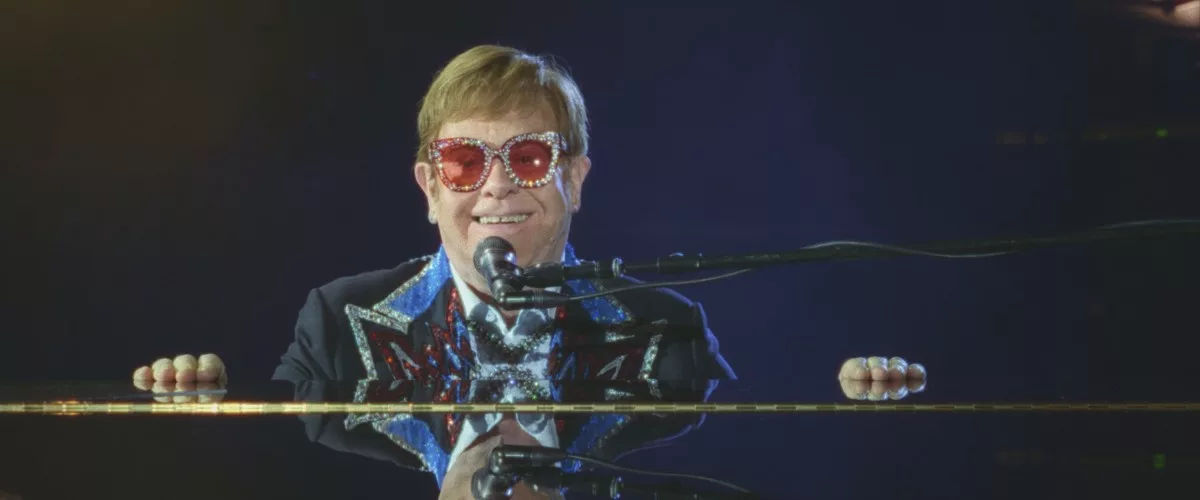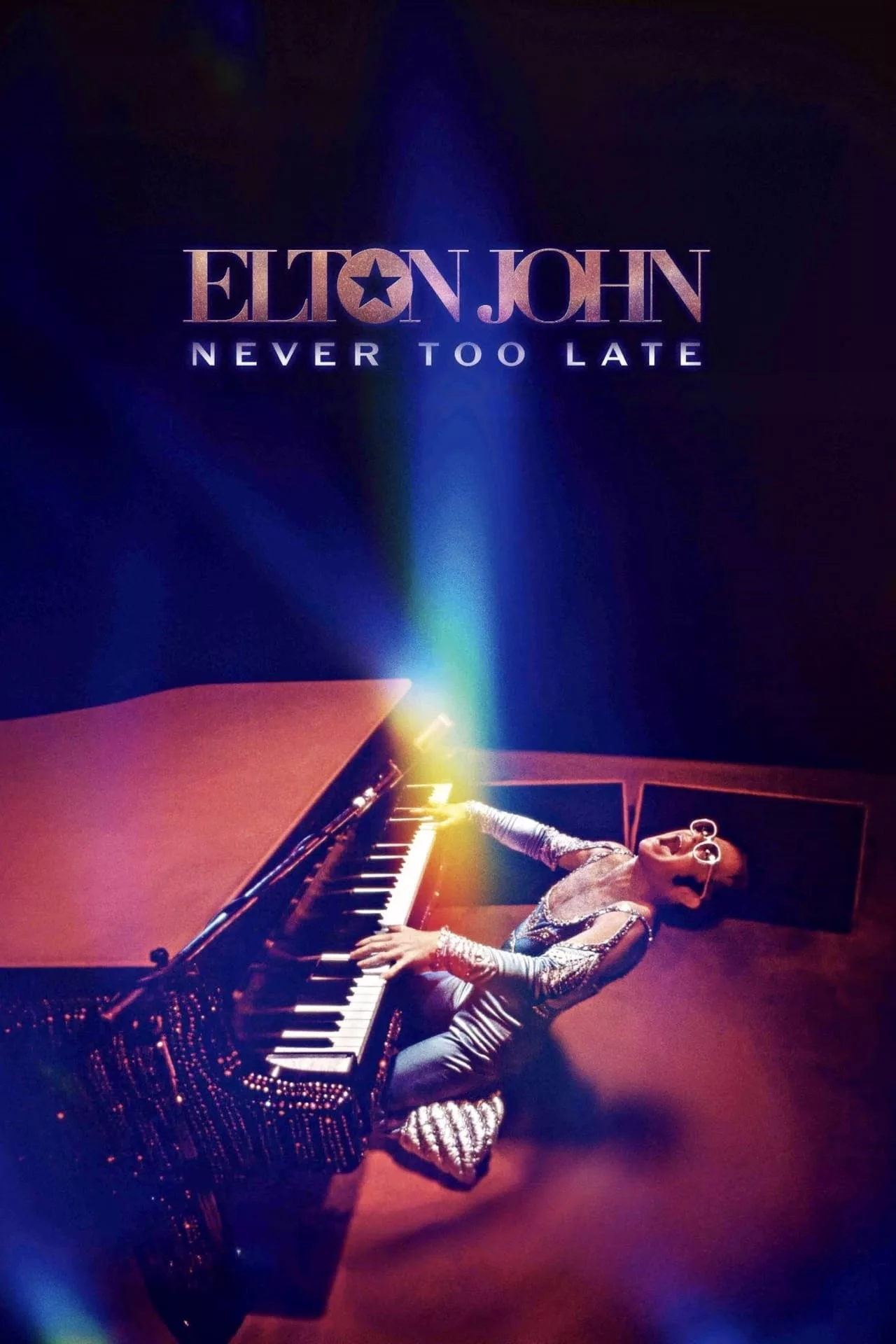“Elton John: Never Too Late” is an affecting movie that the musician’s fans will likely appreciate, but it’s the equivalent of those official oil portraits that the more intelligent and self-aware royals used to commission. It’s made for Disney+, but playing a very limited run in theaters, the movie is co-directed by John’s husband David Furnish (in partnership with nonfiction ace R.J. Cutler) and produced by Elton John’s Rocket Entertainment, which also produced the biopic “Rocketman.” It covers a lot of the same ground as the latter, with footage of John’s live performances (and some audio-driven montages of still photos) serving the same narrative function as the Hollywood drama’s fabulous musical fantasy numbers.
If you’re familiar with the outlines of John’s life, you won’t be surprised by the milestones it focuses on, including his career-making gig at the Troubadour Club in Los Angeles, that amazing run of albums and singles from 1969-1980, his tight bond with lyricist Bernie Taupin, his addiction and recovery, his abuse at the hands of his manager and first partner John Reid, his struggle to muster the nerve to come out as gay, his decision to get married and have kids, and his struggle to accept his non-Adonis looks (if you have enough ambition, he says, “it doesn’t matter what you look like, it doesn’t matter what you sound like”).
What’s new here is the section on John’s podcast and the parts about John grappling with the fact of his own impermanence. He is, by his own admission, pretty old to have become a father, and told the press he was retiring from the road to spend as much time with them and Furnish as he can in the years he has left. “This is where you start to think about mortality,” he says, adding that his sons “think about my mortality…because they know how old I am. I want to see them get married and have children, but I don’t think I’m gonna be around for that.”
Filmically, the movie is less a complete statement than an assortment of loosely grouped notions and materials, held together by the subject’s incandescent music and the quiet forcefulness of his personality. Its rhythms are stop-and-start, especially when it’s playing recordings of his music or showing John performing live. To be fair, the movie stays in a creative moment longer than most documentaries of its type, and doesn’t get antsy and cut away to an interview. But there are no full numbers save for a performance of “Whatever Gets You Through the Night” by John and his buddy John Lennon at Madison Square Garden. And there are many times when it cuts away right when you’re really getting immersed in whatever it’s showing you, which can be more frustrating than a movie that just gives us a little taste and then moves on.
As a movie, “Elton John: Never Too Late” is mainly of interest for the letters, contracts, press clippings, photos, and home movie footage drawn from John’s archives, and for what it demonstrates about a photograph’s ability to capture the turbulent emotional interiors of people who think they’ve put on their best poker face. He talks about how he was only happy in the early years when he was onstage, and the images bear that observation out. This film may not, in fact, contain a single photo or film clip of John from the years 1974 through 1980—the year he finally came out as “bisexual” in a Rolling Stone interview and began the journey towards being at peace with himself—in which he doesn’t look drugged out, miserable, or both. (John entered recovery in 1990 and has advocated for it ever since.)
It’s moving to see how far John has come in his long journey towards contentment. It’s also a treat to hear the contrast between his older performances, when he had staggering range as a vocalist and could bust out a killer falsetto, and the more recent live renditions of his hits where he’s dropped his voice an octave and doesn’t try to do anything he can no longer do. There’s a gravity that wasn’t there before. You can hear the wisdom.




















